- Home
- Joe R. Lansdale
Hap and Leonard Ride Again Page 2
Hap and Leonard Ride Again Read online
Page 2
I’m not usually a guy who’ll open a conversation with a stranger. I’m socially awkward and the very picture of an introvert (quite the opposite of Joe, as I learned), but Judy and I had been wandering around the convention all weekend without speaking to anyone, and I thought we might as well get acquainted with one person. So I introduced myself. Joe seemed a little suspicious at first when I told him that I knew him from another fandom. Maybe he thought it was some kind of April Fools joke. However, after I told him that I’d read his letters and reviews in The Mystery FANcier, he relaxed and pretended that he recognized my name, too. He introduced his wife, Karen, and we talked for a few minutes. Not long, but long enough to exchange addresses. Almost as soon as we got home, we began a correspondence.
This correspondence was conducted in the quaint manner of the time, by means of typewritten letters on paper that was folded, placed in envelopes, and put in the U.S. mail, after which time the letter would reach the recipient within a few days. It seems like a tedious process compared to email, but it worked just fine for me and Joe. We became friends by way of our letters, and every year we’d get together at AggieCon and talk about the same things we wrote about in the letters: writing, reading, movies, TV, and just about anything that interested us. There was hardly anything that didn’t interest us, to be honest, and the discussions were wide-ranging, indeed. We covered just about everything, from why Mars needs chickens to why Winston Churchill said (or didn’t say) that the British naval tradition was nothing but “rum, sodomy, and the lash.” Shoes and ships and sealing wax probably got into the conversation, too.
Many more people than Joe and I got involved in these discussions. A number of couches lined the hallway where we met, and often two or three other couches would be dragged to where we were. People sat on the floor, as well. The core group for many years consisted of me and Judy, Joe, Scott Cupp, Willie Siros, and Neal Barrett, Jr. I can’t remember all of the others who dropped by, but I know that Tom Knowles, Lewis Shiner, Henry Melton, Kurt Baty, Bill Page, and Jayme Lynn Blaschke showed up at one time or another. Sometimes the convention guests would stop and talk, too. I know that Greg Bear and David Drake did when they were the guests of honor.
Whatever else we talked about, the main topic was always writing. Not that everybody there wanted to write and publish, but most of us did, and a lot of us succeeded. Neal, of course, had succeeded already, and Joe and I were working on it. In 1981, both he and I published novels. His was Act of Love, a novel about a serial killer on the loose in Houston. It was published by Zebra Books, with one of its many fondly remembered knives-in-fresh-fruit covers. Joe’s had an impaled strawberry, I believe. Mine was The Coyote Connection, one of hundreds of Nick Carter novels in that long-running series. It was written in collaboration with a friend, and here’s a big difference between me and Joe. I would have been quite content to spend the rest of my life writing Nick Carter novels, and I might well have done just that had the editor who liked the proposals my co-author and I sent her not moved on. Joe, on the other hand, had no intention of spending the rest of his life writing novels about serial killers.
That was because Joe had more than talent. He had ambition, and he had a powerful confidence in his writing. I had neither one, and after the new Nick Carter editor nixed the proposals my co-author and I had sent to the previous editor, I took a look at the other novel I’d been working on and stuck it in a desk drawer and forgot it.
Joe kept writing, but he didn’t stick to crime. From the very start, he was mashing up genres and selling a good many stories while also writing all kinds of things that nobody would buy. He didn’t let the things that didn’t sell bother him. He was too busy with books like The Nightrunners, The Drive-In, and The Magic Wagon to worry. In 1989, he published Cold in July, which I think of as something of a breakthrough novel. It was a crime novel, but it wasn’t like Act of Love. It was about ordinary people in East Texas who found themselves in an extraordinary situation, with some savage violence but with some humor and a core of humanity and decency that would distinguish Joe’s books from then on.
A few years before Cold in July, I’d pulled my abortive novel out of my desk drawer because Joe had suggested we collaborate on a book. I sent him the fifty pages I’d written, but he soon sent them back. His career had started to take off. All those things that nobody would buy were selling now, and he didn’t have time for a lengthy collaboration. And he said that the manuscript was fine just like it was and didn’t need anything from him to help it along. I eventually finished the book on my own and sold it.
When I got the acceptance letter for my novel, the editor concluded by saying, “You are working on a sequel, aren’t you?” The honest answer to that question would have been, “Nope. I never dreamed I’d sell that book, much less another one.” This wasn’t the answer I gave, however. I said, “Of course I’m working on a sequel.” Soon after I sent that letter, I was at the typewriter (this was a long time ago, remember), and the Sheriff Dan Rhodes series is still going as I write this, with nearly twenty-five books and a lot of short stories in it now.
Which brings me at last to Hap Collins and Leonard Pine, the dynamic duo of East Texas who first appeared in Savage Season in 1990. It was a paperback original, and nobody who’s seen the cover with its dramatic painting of a woman’s hand with a nail driven right through the middle is likely to forget it. I remember considerable discussion of that cover at the AggieCon after the book appeared. Would people buy a book with a cover like that, or would they be put off by it? We never came up with a definitive answer, though we all agreed that it was an accurate depiction of the contents.
The other topic of discussion related to the book was about series characters. By that time, I’d published five books in the Sheriff Rhodes series, so I considered myself an expert on the topic. Joe said he didn’t like the idea of writing a series. It was too confining. He had too many ideas, too many different books he wanted to write, too many genres he wanted to explore and mash together and generally manhandle. I expect that explains at least in part why it was four years before a second Hap and Leonard novel appeared. By that time a lot of people must have thought the first one was a stand-alone instead of just a great first act.
But I know how it is with writers and characters. When you write a book, the characters don’t just go away. They hang around in your head, and sometimes they talk to you. Sometimes they tell you such good stuff that you can’t resist sitting down and writing a few sentences about them, and before long you find out you’re forty or fifty pages along in what’s about to become a much longer manuscript. So you keep writing things down until the characters shut up for a while.
Hap and Leonard must have been pretty insistent talkers, because after Mucho Mojo appeared in 1994, the books about them came out with some regularity: The Two-Bear Mambo (1995), Bad Chili (1997), Rumble Tumble (1998), and Captains Outrageous (2001). Then the guys went quiet for eight years. It’s not that Joe wasn’t writing. He was writing a lot, winning about every award there was, including the Edgar presented by the Mystery Writers of America for Best Novel. His bibliography is mighty impressive.
The boys were back at last in 2009 in Vanilla Ride, followed by Devil Red in 2011, and a couple of novellas, Hyenas in 2011 and Dead Aim in 2013. A new novel, Honky Tonk Samurai, is out in 2016. Not to mention the short stories, several of which are included in this volume. For someone who didn’t think he wanted to write a series, Joe’s done very well by his characters, and they’ve done well by him.
And what characters they are. Hap Collins is a working-class kind of guy who, by what must be the merest coincidence, shares a little bit of Lansdale’s own background. Joe didn’t go to prison for refusing to go to Vietnam as Hap did, but he did oppose the war on moral grounds, and he did refuse to be drafted. Once he makes up his mind, he’s like another famous Texan, David Crockett, whose motto was “Be sure you’re right, then go ahead.” Joe never backed down, and he didn’t go off
to war. You could probably look up the court case if you were so inclined. Hap didn’t back down, either, and served his time in prison. He’s still a peaceable sort most of the time, and he doesn’t much like guns. Leonard once told him that he had “more bleeding heart than the Democratic Congress.” But hurt one of his friends or threaten them, and it’s another story. Readers can be forgiven if they get the feeling that had Hap gone to Vietnam, he’d have kicked out the Viet Cong in a few weeks, especially if he’d had Leonard to help him.
Leonard Pine, unlike Hap, isn’t a peaceable sort at all. He’s black, gay, and often angry, eager to kick anybody’s ass at the least excuse. He did go to Vietnam, and when you think about it, that would make both him and Hap about ready to go on Medicare and draw Social Security, assuming they ever paid into those programs, which isn’t entirely likely considering their occupations, or lack of them. It’s a good thing that fictional characters don’t age like us mere mortals, or Hap and Leonard would be having a tough time keeping up their active lifestyles.
Although they sometimes find themselves working as unlicensed investigators for P.I.s named Marvin Hanson or Jim Bob Luke, Hap and Leonard have most often taken on jobs for friends or helped each other work out personal problems that have turned seriously bad and require some heavy lifting to set right. However, both of them have had real jobs on occasion. Hap has worked in the Tyler rose fields, like his creator; at an aluminum chair factory; and on an offshore oil platform. He also works as a bouncer at various bars now and then, although it’s a bit embarrassing to him to be doing work that requires him to beat up grown men. He and Leonard have worked security at a poultry plant, too, although Leonard would prefer to be a bouncer. He’s not embarrassed by the work and doesn’t mind beating up on anybody at all. As a bouncer, he can work out his anger issues in a more or less acceptable and legal fashion. Leonard also likes to burn down crack houses, but that’s not really an occupation. It’s more of a hobby.
What Hap and Leonard have instead of steady jobs is a talent for getting into trouble. They can’t even take an ocean cruise without getting kicked off the ship and marooned in Mexico. We readers wouldn’t have it any other way, of course. If they just sat around and led boring lives, they wouldn’t be any fun to read about.
Or maybe they would. One thing that distinguishes the books and makes them so readable is Lansdale’s use of language. Or maybe I should say that it’s Hap’s use of language. Hap is the first-person narrator of his own adventures, after all, and he has a way with a simile. When it’s humid, for example, Hap might say that it’s “humid as a monkey’s armpit.” A man’s not just fast on the draw. He produces a pistol “quick as a bunny fucks.”
I have a theory that you can draw a straight line from Mark Twain’s use of the American vernacular to Joe Lansdale’s use of it. Here’s what Twain says in his explanatory note to The Adventures of Huckleberry Finn: “In this book a number of dialects are used, to wit: the Missouri negro dialect; the extremest form of the backwoods Southwestern dialect; the ordinary ‘Pike County’ dialect; and four modified varieties of this last. The shadings have not been done in a hap-hazard fashion, or by guesswork; but painstakingly, and with the trustworthy guidance and support of personal familiarity with these several forms of speech.
“I make this explanation for the reason that without it many readers would suppose that all these characters were trying to talk alike and not succeeding.”
Lansdale’s use of dialect is equally masterful, although instead of Pike County his territory is East Texas. If I were really going to get far out in my literary theorizing, I’d seize on Twain’s “hap-hazard” comment and write a paper for the Modern Language Association’s annual meeting about how Hap Collins’ first name was derived from Twain’s note. But I’m not teaching anymore, and I don’t have time for high-falutin literary essays. Besides, I might be wrong.
I do know for sure that there’s nothing haphazard about what Lansdale does with words. He’s not just making up the language that appears in Hap’s narratives. He has, or had at one time, people who’d scout around for good phrases to use in his novels. At one of those late-night sessions at a long-ago AggieCon, Joe said that a friend had recently come to him and said, “I got you one.” When Joe asked what it was, the friend said, “It’s hotter than two rats fucking in a wool sock.” Sure enough, that expression turned up on one of the books not long afterward. It’s too bad nobody recorded those gab sessions. History in the making.
And like Twain, Lansdale’s not afraid to use what’s now called “the n-word.” In fact, there might be more instances of it in one of Lansdale’s books than in Twain’s. Lansdale’s despicably racist characters, of which there are many, find nothing offensive about the word, and it just comes naturally to them, as it does to one in The Two-Bear Mambo, who has fond memories of minstrel shows and who thinks Leonard is funny: “I didn’t realize how much I’d missed being around funny niggers. And what I got here is not just some white man in blackface playing nigger, I got the real thing. I got me a genuine, born-of-black-hole nigger.” If you think a situation containing comments like this doesn’t end happily, you’d be right on the money.
Here’s something else. Terrible things are being said in this scene, and terrible things are happening, with even worse things to come, but it’s still very funny in a horrible way. Lansdale can wring humor out of any situation, even this one. You might hate yourself for laughing, you might look back and wish you hadn’t laughed, but you’re going to laugh. It’s the language that does it, as when a man describes Chihuahuas: “Sonofabitches would rather bark and piss than fornicate and eat. That’s the thing about ’em. They got no priorities. My sister had one of them little poots, and she use to jack him off once a week ’cause he was tense. Never could figure out what was wrong with the sonofabitch lickin’ his noodle like any other respectable dog.” You’re not going to find a passage like that in anybody else’s books.
Hap and Leonard deal out a lot of punishment over the course of the series, but they take a lot of punishment, too. More than most men could handle, I think. After the scene from The Two-Bear Mambo I quote above, for example, there’s a brawl in which the two come out on the bad end of a serious beating. In Bad Chili, we find out about Hap’s first meeting with Jim Bob Luke, just after Hap has been tied to a chair with a car battery attached to his testicles. He’s had a jolt from the battery, too, and if you can’t imagine what something like that might to do a fellow, Lansdale is quite happy to tell you. And he does.
It should be pretty obvious by now that the entire series is not exactly what a reader would want to dip into when looking for some polite, politically correct fiction or for something to read aloud at a Sunday School picnic. Every book is full of cussing, sex, and heavy-duty violence. Not to mention a lot of laughs. It’s a tough act to pull off, but Lansdale is a master at doing it. The opening of Bad Chili, which describes Hap and Leonard’s battle with the rabid squirrel, is downright hilarious, even though it’s also frightening and doesn’t end well for the squirrel. Or Hap, for that matter.
No one should get the idea that books full of cussing, sex, and heavy-duty violence can’t be socially conscious or present serious ideas and thoughtful commentary. Lansdale’s Hap and Leonard works, besides containing all of the above and being funny besides, are also full of thoughtful social commentary, but it’s couched in such a fast-moving narrative that some of it would be easy to overlook. Not the criticism of racism, of course. That’s everywhere in the books, but you don’t have to look too hard to find comments on the environment, politics, relationships, and friendships. Nothing about any of this is obtrusive, but it’s all there if you want it.
Hap and Leonard are always true to themselves and to their friends, and while they’re willing to use violence if they have to, and kill if they have to, they do have a code of sorts. They believe in sticking up for each other, their friends, and people who need their help. They don’t take kindly to insult
s, and they believe in payback. They’re tough, resourceful, and all too human. What’s not to like?
I have one other theory about the books and stories about Hap and Leonard. It’s that nobody really cares about the plots. (I think this is true of a lot of crime novels, in fact, maybe even my own.) The plot is just the writer’s excuse for setting down a tale that ties the pages together. What people really care about is the characters and the writing, or, as Robert B. Parker put it about his own novels, “They like the sound of the words on the page.” Those two things are what make series books a success. Readers want to find out more about the characters and what they’re up to. It’s almost as if they’re real people, old friends whom you like to hear from every now and then. It doesn’t matter how long the series becomes. Readers don’t want it to end. They want their old friends to endure.
And readers want to keep hearing the author’s voice. It becomes a familiar comfort, and from the first page of each story, you know that you’re hearing something unique to an individual, a way of writing that comes from a particular place within a particular person, something that nobody else can duplicate.
It’s true that people try. A series can continue even after an author’s death if the estate finds a writer to carry it forward. Most often I find these continuations remind me of another story about Mark Twain, when his wife tried to shame him about his cussing by repeating what he said. He told her that she had the words but not the tune. Lansdale has his own tune, and it’s not like anyone else’s. It’s unique, his alone, and it carries the reader along with a sound that nobody else can duplicate. He’s been around for a while now, easily long enough for other writers to try to capture some of the magic that appears on his pages, but if they have the words, they don’t have the tune. Lansdale’s still out there singing his own song, and that’s what we want to hear.

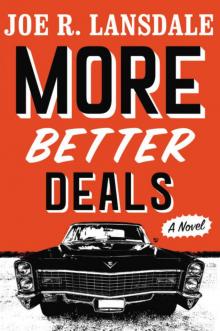 More Better Deals
More Better Deals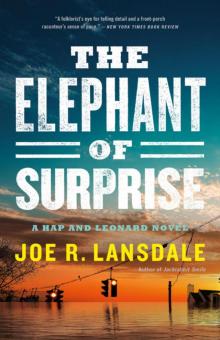 The Elephant of Surprise
The Elephant of Surprise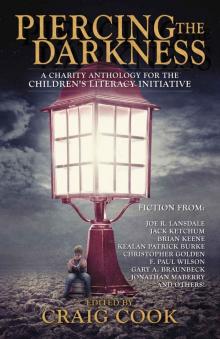 Piercing the Darkness: A Charity Horror Anthology for the Children's Literacy Initiative
Piercing the Darkness: A Charity Horror Anthology for the Children's Literacy Initiative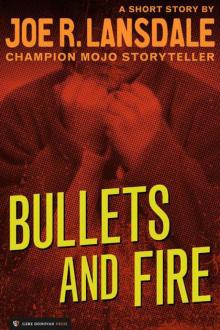 Bullets and Fire
Bullets and Fire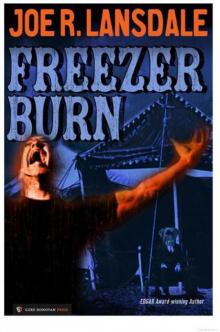 Freezer Burn
Freezer Burn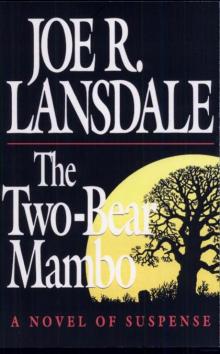 The Two-Bear Mambo
The Two-Bear Mambo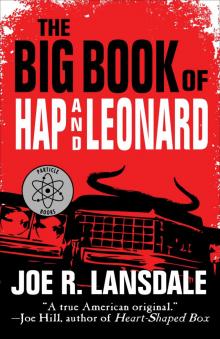 The Big Book of Hap and Leonard
The Big Book of Hap and Leonard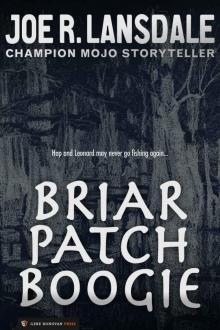 Briar Patch Boogie: A Hap and Leonard Novelette
Briar Patch Boogie: A Hap and Leonard Novelette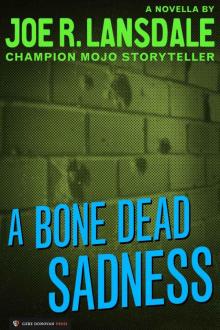 A Bone Dead Sadness
A Bone Dead Sadness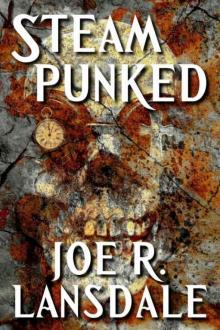 Steampunked
Steampunked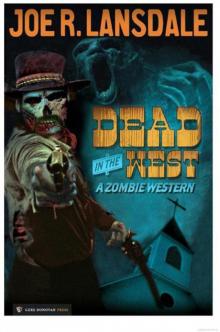 Dead in the West
Dead in the West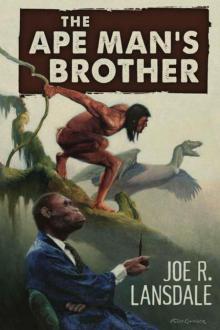 The Ape Man's Brother
The Ape Man's Brother The Bottoms
The Bottoms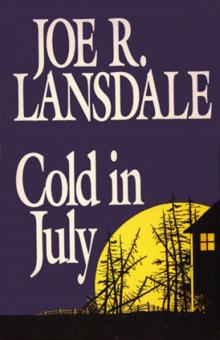 Cold in July
Cold in July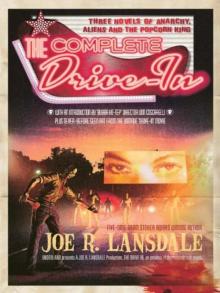 The Complete Drive-In
The Complete Drive-In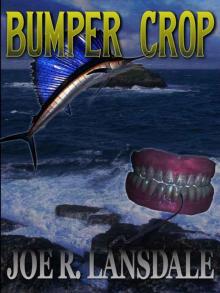 Bumper Crop
Bumper Crop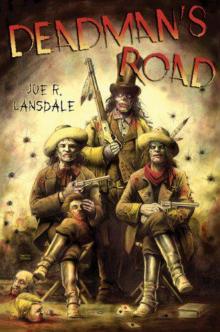 Deadman's Road
Deadman's Road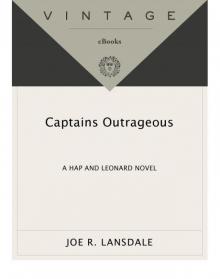 Captains Outrageous
Captains Outrageous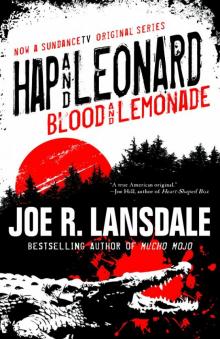 Hap and Leonard: Blood and Lemonade
Hap and Leonard: Blood and Lemonade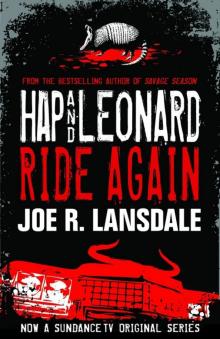 Hap and Leonard Ride Again
Hap and Leonard Ride Again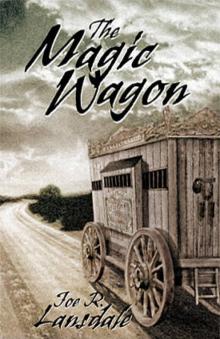 Magic Wagon
Magic Wagon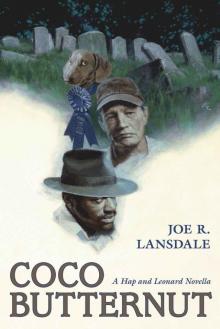 Coco Butternut
Coco Butternut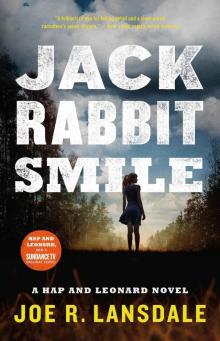 Jackrabbit Smile (Hap and Leonard)
Jackrabbit Smile (Hap and Leonard)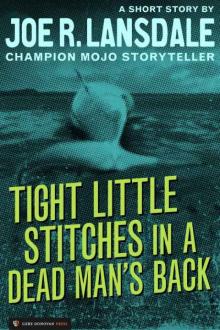 Tight Little Stitches in a Dead Man's Back
Tight Little Stitches in a Dead Man's Back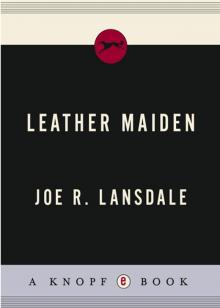 Leather Maiden
Leather Maiden Cold Cotton: A Hap and Leonard Novella (Hap and Leonard Series)
Cold Cotton: A Hap and Leonard Novella (Hap and Leonard Series)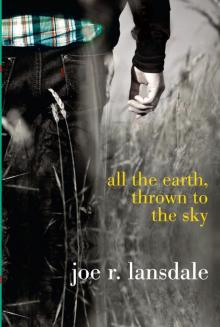 All the Earth, Thrown to the Sky
All the Earth, Thrown to the Sky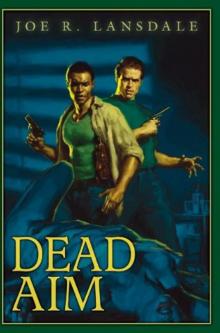 Dead Aim
Dead Aim Edge of Dark Water
Edge of Dark Water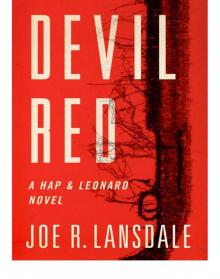 Devil Red
Devil Red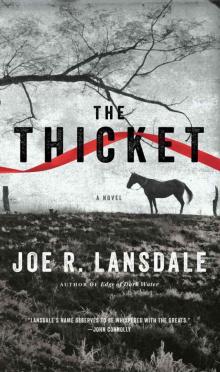 The Thicket
The Thicket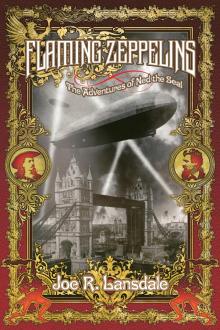 Flaming Zeppelins
Flaming Zeppelins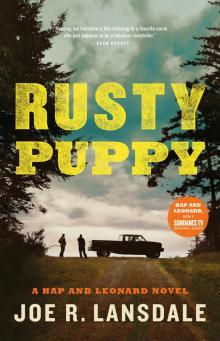 Rusty Puppy
Rusty Puppy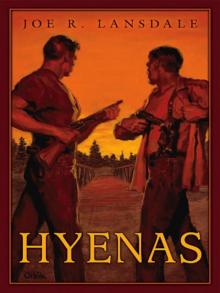 Hyenas
Hyenas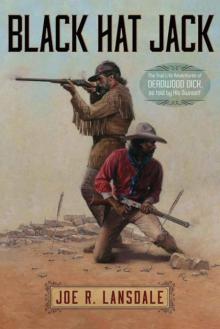 Black Hat Jack
Black Hat Jack Rare Lansdale
Rare Lansdale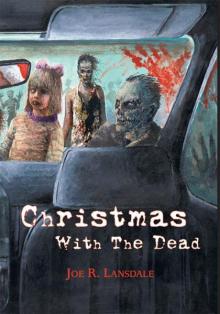 Christmas With the Dead
Christmas With the Dead The Best of Joe R. Lansdale
The Best of Joe R. Lansdale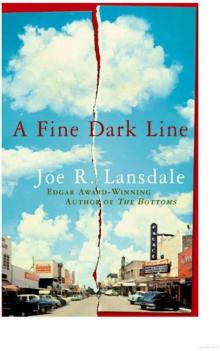 A Fine Dark Line
A Fine Dark Line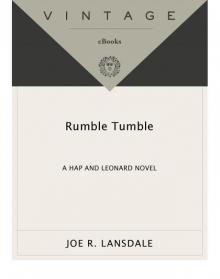 Rumble Tumble
Rumble Tumble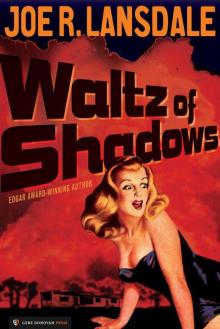 Waltz of Shadows
Waltz of Shadows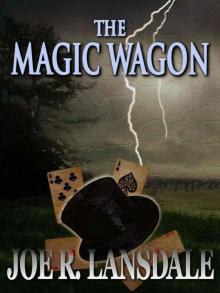 The Magic Wagon
The Magic Wagon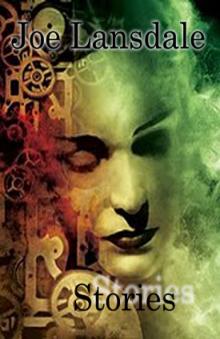 Stories (2011)
Stories (2011)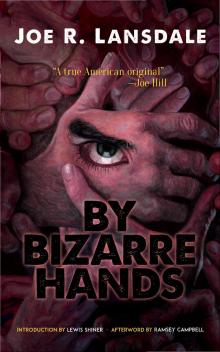 By Bizarre Hands
By Bizarre Hands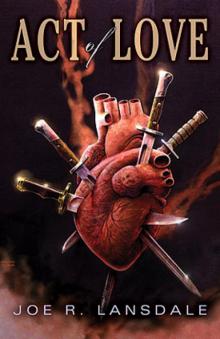 Act of Love (2011)
Act of Love (2011)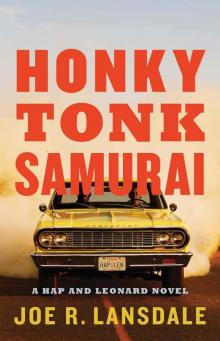 Honky Tonk Samurai (Hap and Leonard)
Honky Tonk Samurai (Hap and Leonard)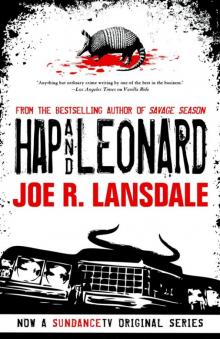 Hap and Leonard
Hap and Leonard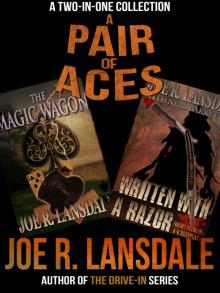 A Pair of Aces
A Pair of Aces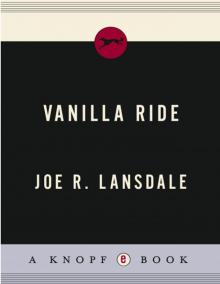 Vanilla Ride
Vanilla Ride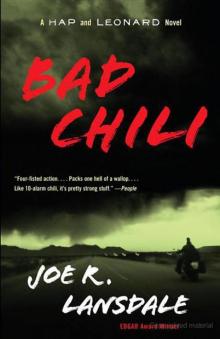 Bad Chili
Bad Chili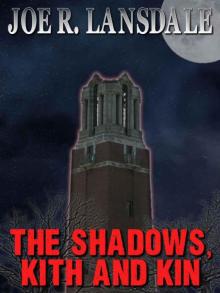 The Killer's Game
The Killer's Game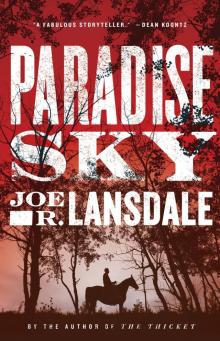 Paradise Sky
Paradise Sky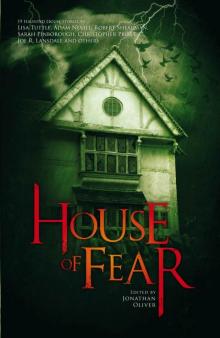 House of Fear
House of Fear Lost Echoes
Lost Echoes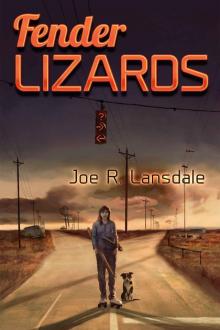 Fender Lizards
Fender Lizards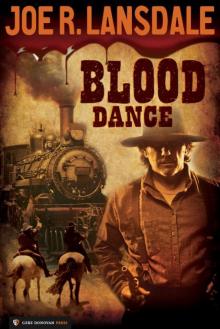 Blood Dance
Blood Dance Hot in December
Hot in December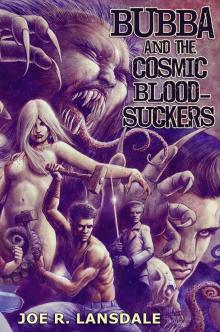 Bubba and the Cosmic Blood-Suckers
Bubba and the Cosmic Blood-Suckers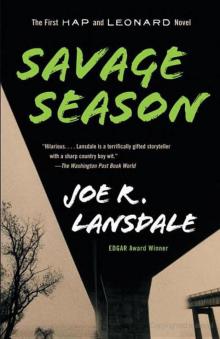 Savage Season
Savage Season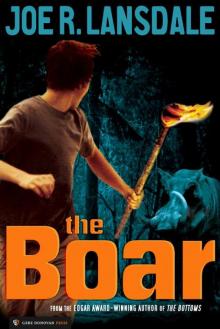 The Boar
The Boar Miracles Ain't What They Used to Be
Miracles Ain't What They Used to Be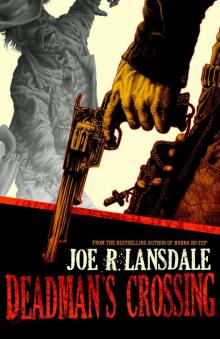 Deadman's Crossing
Deadman's Crossing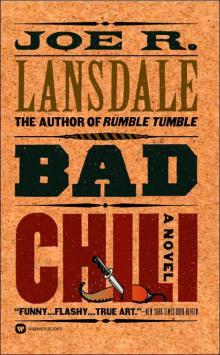 Bad Chili cap-4
Bad Chili cap-4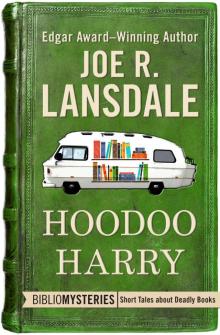 Hoodoo Harry
Hoodoo Harry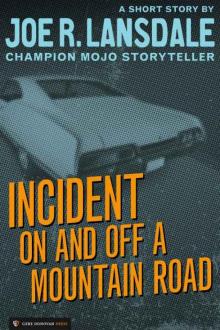 Incident On and Off a Mountain Road
Incident On and Off a Mountain Road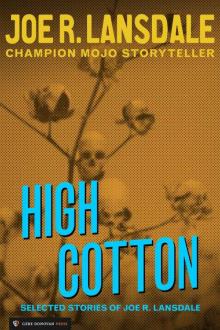 High Cotton: Selected Stories of Joe R. Lansdale
High Cotton: Selected Stories of Joe R. Lansdale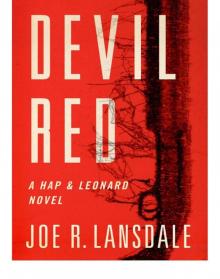 Devil Red cap-8
Devil Red cap-8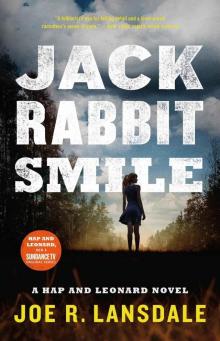 Jackrabbit Smile
Jackrabbit Smile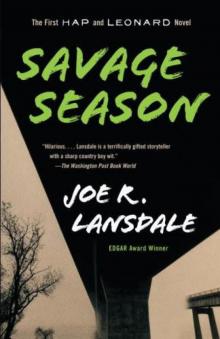 Savage Season cap-1
Savage Season cap-1 Sunset and Sawdust
Sunset and Sawdust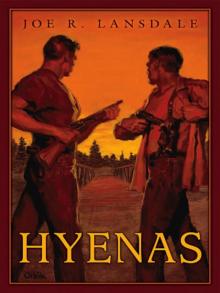 Hyenas cap-10
Hyenas cap-10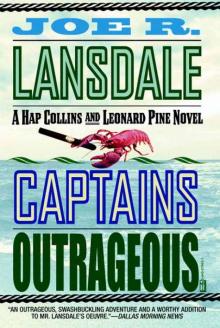 Captains Outrageous cap-6
Captains Outrageous cap-6 The Steel Valentine
The Steel Valentine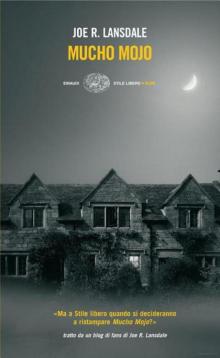 Mucho Mojo
Mucho Mojo Vanilla Ride cap-7
Vanilla Ride cap-7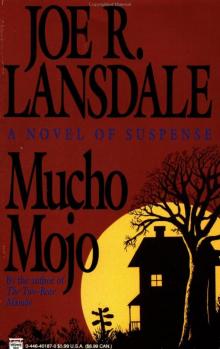 Mucho Mojo cap-2
Mucho Mojo cap-2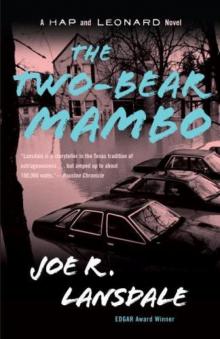 The Two-Bear Mambo cap-3
The Two-Bear Mambo cap-3